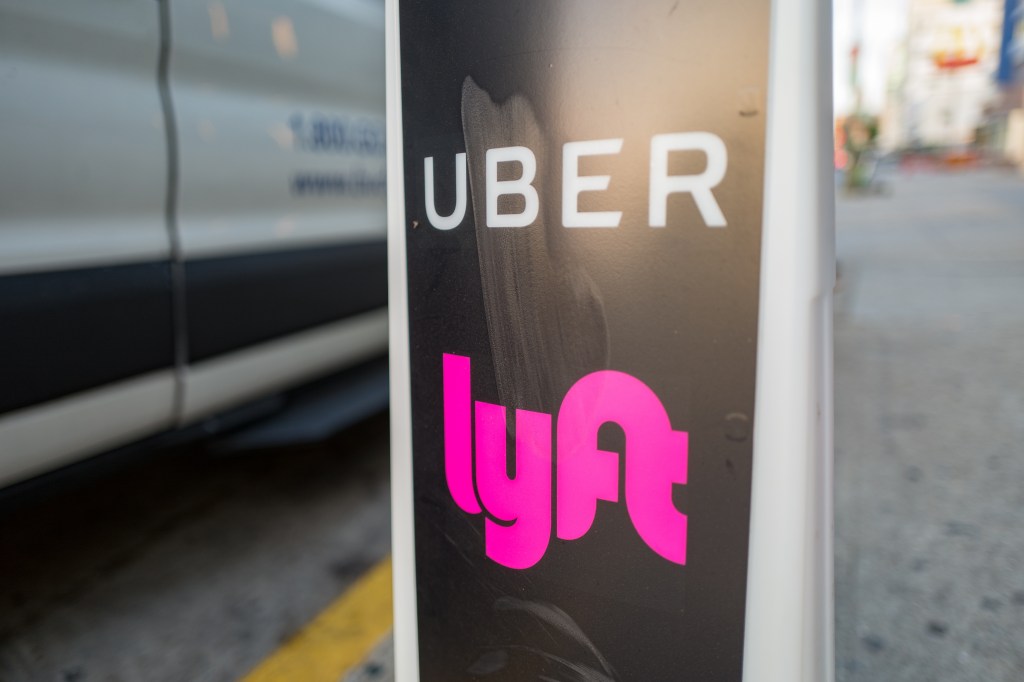In recent weeks, gig economy companies including Uber and Lyft have bankrolled nonstop television, internet, and in-app advertisements supporting Proposition 22, a California ballot measure that would exempt gig economy companies from reclassifying their workers as employees.
Now, Southern California voters are receiving political mailers designed to trick progressive voters into supporting the ballot proposition.
Videos by VICE
Over the weekend, voters posted to Twitter photos of mailers prepared by organizations named “Feel the Bern, Progressive Voter Guide,” “Council of Concerned Women Voters Guide,” and the “Our Voice, Latino Guide,” all of which sent out a list of identical endorsements. These are not authentic political organizations, and appear to be the mass mailing creations of a firm called Gould and Orellana, LLC, the Long Beach address of which appears on the mailers. The firm’s founder, David Gould, also happens to be treasurer of each group according to public records.
The Gould-run Progressive Voter Guide slate mailer organization was paid $20,000 by the Yes on Proposition 22 campaign, according to California public records. Yes on Proposition 22, which is backed by gig economy companies including Uber and Lyft, has raised over $186 million altogether, spending it on a flood of radio, television, digital, and physical advertisements as well as the services of lobbyists and various consultants.
Electronic filings also show that Yes on Proposition 22 has spent at least $805,250 on slate mailers with groups such as: the Cops Voter Guide, Continuing the Republican Revolution, Californians for a Sustainable Future.
Slate mailers are mass mailed literature that tells voters whether they should support or oppose certain candidates or ballot measures. In California, they are essentially pay to play: candidates and groups behind ballot measures regularly use slate mailers to present themselves as being independently endorsed by some group that usually does not exist except for the purpose of mailing out said fake endorsements.
On Sunday, Bernie Sanders condemned the misleading mailers in a tweet. “This mailer in CA is a lie and I call on Uber and Lyft to publicly denounce the deception,” the Vermont senator tweeted. “I’m opposed to Prop 22 because people working full time deserve decent wages and good benefits. CALIFORNIA: If you oppose corporate greed, vote no on Prop 22.”
Spokespeople for the Yes on Prop 22 campaign did not respond to Motherboard’s request for comment.
Gould & Orellana has sent out fake mailers intentionally designed to deceive voters before. In 2018, the firm was behind fake “Feel the Bern” mailers sent out in San Luis Obispo County opposing Measure G, which sought to ban new oil wells and fracking in the county. Largely funded by Big Oil, the No on Measure G campaign successfully defeated the ballot measure by eleven points. David Gould—the firm’s founder—has worked for years as a treasurer to many Democratic campaigns.
Gould and Orellana did not answer Motherboard’s calls and did not immediately respond to a request for comment.
Gould also has a longstanding relationship with Renee Nahum—a self-described “20-year veteran of Los Angeles politics” that has worked on numerous Democratic Party campaigns and held prominent positions in the local party operation. In the first six months of 2019, Gould’s faux-progressive mailing organization pulled in $1,750 in donations, but paid Renee Nahum & Associates $15,000 in consulting fees. Nahum is also connected to the Council of Concerned Women Voters slate mailing organization, which SFGate confirmed paid her $20,000.
Uber and Lyft have a long track record of aggressive propaganda campaigns and lobbying operations. They’ve given the California GOP millions of dollars and tried to pitch Proposition 22 as a bold pro-worker ballot measure. The Yes on Prop 22 campaign has doubled down on painting its misclassification regime as a uniquely positive force in the lives of its predominantly Black and brown workforce, even though numerous studies and analyses have shown Black and brown workers are hurt the most when denied classification as employees.
Uber and Lyft have hired record numbers of lobbyists this year—many of them prominent GOP lobbyists—to fight reclassification threats in California and Washington DC, threatened capital strikes if denied the right to misclassify workers, organized harassment campaigns against critics, and been conveniently silent when misinformation about driver earnings is spread through prominent news media.
“It seems that these companies would sooner destroy their own businesses than grant workers the dignity of comprehensive benefits, guaranteed wages or unemployment insurance,” the New York Times editorial board wrote in a recent op-ed opposing Prop 22. “Rejecting Prop 22 is a chance finally to ensure gig workers the protections all workers deserve.”
Wilfred Chan, a contributor for The Nation and an app-based driver, wrote a breakdown of Prop 22, arguing it is part of a key platform strategy that called for “taking over industries by using under regulated labor and setting rock-bottom prices.” It’s only by constantly denying expensive things that drivers need to survive and thrive—healthcare and a minimum wage, for example—that gig economy companies could reduce costs, grow larger, break more laws, and eventually “become the sole provider of vital services, then raise prices, cut wages, and extract profits.”
From the very beginning, the only way the companies behind Yes on Prop 22 have ever been able to improve their margins is by cutting wages and increasing prices. This has been done done by increasing hours worked without pay, reducing rates paid for work done, price discrimination targeting Black and Brown neighborhoods, and a host of other methods that hurt the human behinds behind the wheel just so a business model with no path to profitability can begin to provide investors with a mediocre return on their investment.




